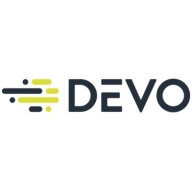

Devo and Security Onion are two notable products in the cybersecurity sector. Devo is favored for its real-time analytics and customer support, while Security Onion shines with its robust open-source features and extensive suite of monitoring tools.
Features: Devo is known for its real-time analytics, ease of integration, and superior data processing capabilities. It efficiently handles large volumes of data with great speed. Security Onion offers a comprehensive suite of security monitoring tools and is valued for its extensive open-source features that provide robust monitoring options.
Room for Improvement: Devo needs improvement in its alert management system and can reduce complexity in configuration to enhance usability. It also could benefit from better documentation. Security Onion requires improved documentation, more intuitive navigation systems, and simplification of deployment processes.
Ease of Deployment and Customer Service: Devo provides flexible deployment models but experiences mixed reviews regarding customer service responsiveness. Security Onion is complex to deploy, but this challenge is offset by a strong community-driven support base.
Pricing and ROI: Devo has higher upfront costs but users report strong ROI due to its powerful data capabilities. Security Onion is a cost-effective solution as it is free, with users recognizing ROI due to its extensive features.


Devo is the only cloud-native logging and security analytics platform that releases the full potential of all your data to empower bold, confident action when it matters most. Only the Devo platform delivers the powerful combination of real-time visibility, high-performance analytics, scalability, multitenancy, and low TCO crucial for monitoring and securing business operations as enterprises accelerate their shift to the cloud.
Security Onion is an open-source Linux distribution for intrusion detection, network security monitoring, and log management. It offers comprehensive solutions for enterprises seeking to enhance their cybersecurity infrastructure.
Security Onion provides a full suite of tools to detect and respond to cybersecurity threats efficiently. As a robust and versatile distribution, it includes capabilities for real-time analysis, network visibility, and threat detection, making it indispensable for security operations centers. Users value this tool for its integration of open-source software with advanced analytics, affording professionals a detailed overview of network traffic and potential intrusions.
What are Security Onion’s most important features?Security Onion finds extensive application in industries such as finance, healthcare, and government sectors, where robust network monitoring is critical. Its ability to integrate with existing security tools makes it a preferred choice for organizations looking to strengthen their cybersecurity posture.
We monitor all Log Management reviews to prevent fraudulent reviews and keep review quality high. We do not post reviews by company employees or direct competitors. We validate each review for authenticity via cross-reference with LinkedIn, and personal follow-up with the reviewer when necessary.